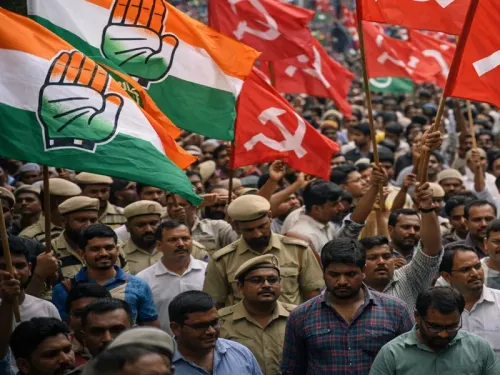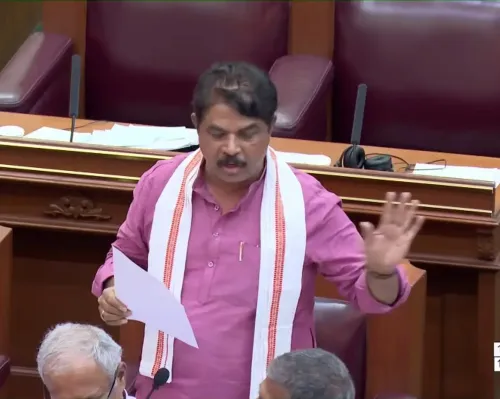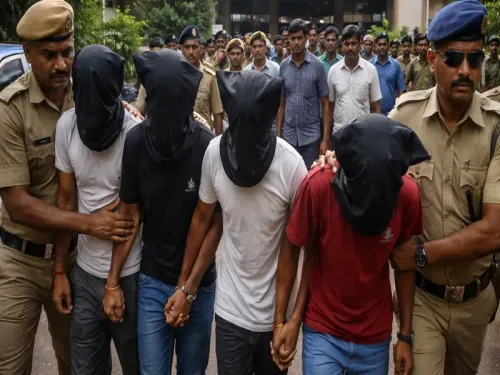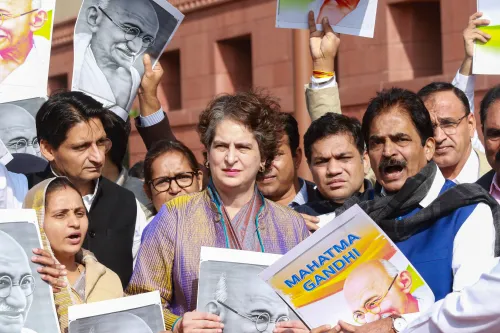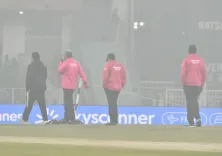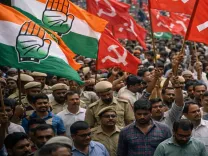Sibal Criticizes Dhankhar's Remarks on Judiciary, Promises Defense
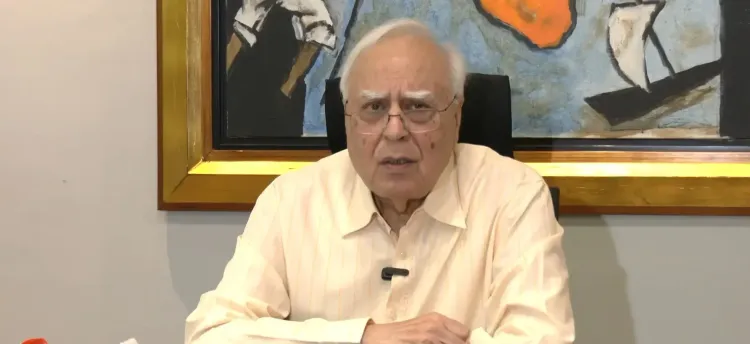
Synopsis
Key Takeaways
- Sibal expresses disappointment over Dhankhar's criticism of the Supreme Court.
- Dhankhar's comments deemed an attack on judiciary integrity.
- Sibal emphasizes the need for political support for the judiciary.
- Concerns raised about the inappropriate language regarding constitutional roles.
- Sibal warns against confusion between executive and judiciary powers.
New Delhi, April 18 (NationPress) Former Union Minister and Rajya Sabha MP Kapil Sibal on Friday expressed his disappointment regarding Vice President Jagdeep Dhankhar's public criticism of the Supreme Court's authority.
Speaking to reporters, Sibal stated he was “surprised and saddened” by Dhankhar’s remarks, which he believed could undermine public confidence in the judiciary.
He characterized Dhankhar’s statements as an “attack” on the judiciary, given his role as the Chairman of the House, and also criticized Union ministers for making similar comments about the courts.
“If the judiciary cannot defend itself, the political structure of the nation must step in to support it. We have faith in the judiciary to act justly,” asserted Sibal, a former Union minister.
“It seems that whenever the judiciary delivers judgments unfavorable to the government, claims of judicial overreach arise. Conversely, when rulings align with the government, such as on Article 370, the government silences dissent by referencing the Supreme Court’s ruling,” he explained.
Commenting on Dhankhar’s assertion that “Article 142 has become a nuclear missile against democratic forces,” Sibal stated, “Such comments about a constitutional office holder are inappropriate.”
“The real nuclear missile was the denomination,” remarked Sibal, a respected legal expert.
Article 142 empowers the Supreme Court to administer “complete justice”, he noted.
Sibal mentioned that the President serves as a nominal head and operates on the counsel of the Council of Ministers. “VP Dhankhar is mistaken in asserting that the Supreme Court’s ruling has diminished the President’s powers,” he added.
“It is neither appropriate nor constitutional for statements to be made that suggest the judiciary is being reprimanded,” Sibal warned, advising the Vice President not to overstep the boundaries established by the Constitution to prevent interference between the executive and judiciary.
Dhankhar’s critique of the Supreme Court coincided with a ruling mandating that the President must act on bills reserved for consideration by the governor within three months of receipt.
Dhankhar contended that the judiciary was exceeding its limits by invoking Article 142, which allows the Supreme Court to issue necessary orders to achieve “complete justice” in cases before it. He described Article 142 as a “nuclear missile against democratic forces available to the judiciary 24/7.”
“We cannot allow a scenario where directives are issued to the President of India, based on what? The only authority you possess under the Constitution is to interpret it according to Article 145(3). This requires a panel of five or more judges... Article 142 has become a nuclear missile against democratic forces, accessible to the judiciary 24/7,” Dhankhar stated.
The Vice President also expressed concern over recent events concerning a substantial amount of cash purportedly discovered at a High Court judge's residence in Delhi. He questioned the constitutional legitimacy of the Supreme Court-established Commission investigating the matter, stating that the Constitution only grants immunity from prosecution to the President and Governors, with no other categories permitted.


